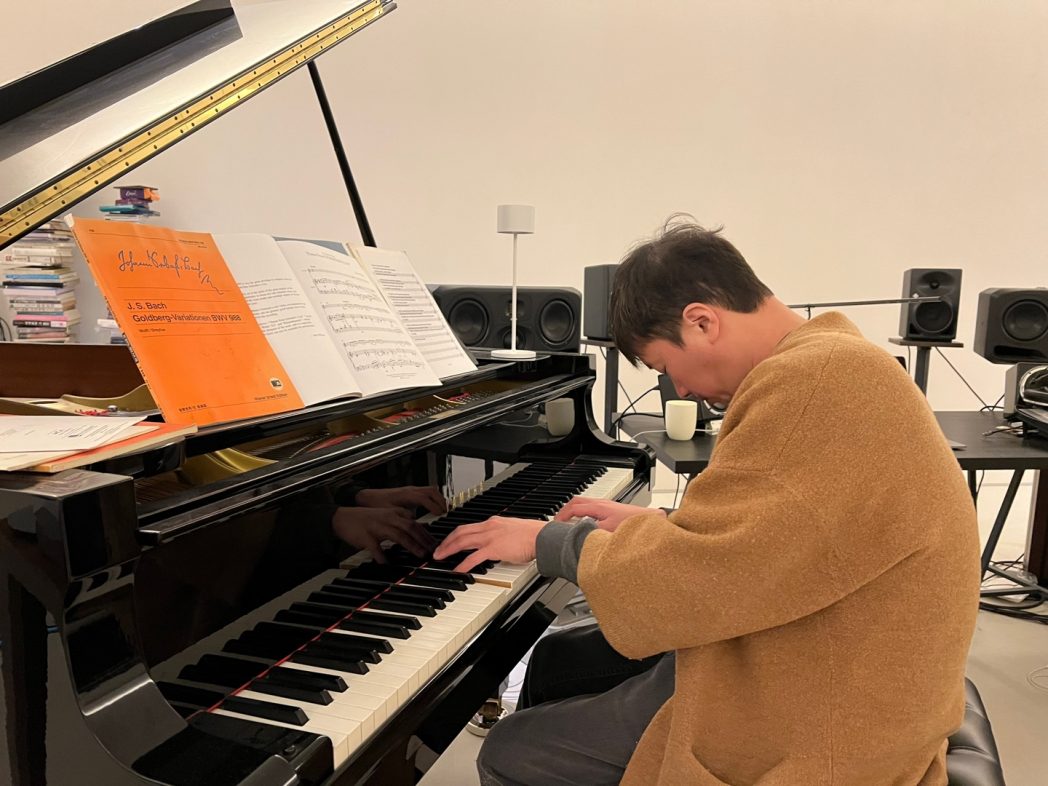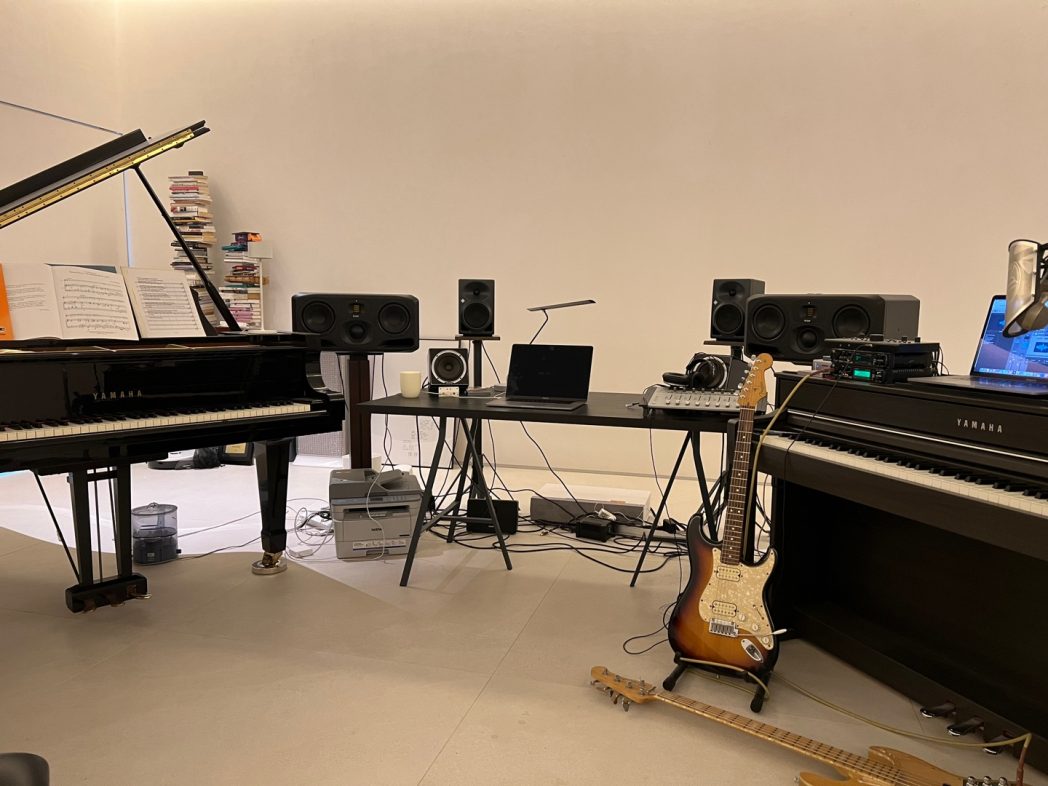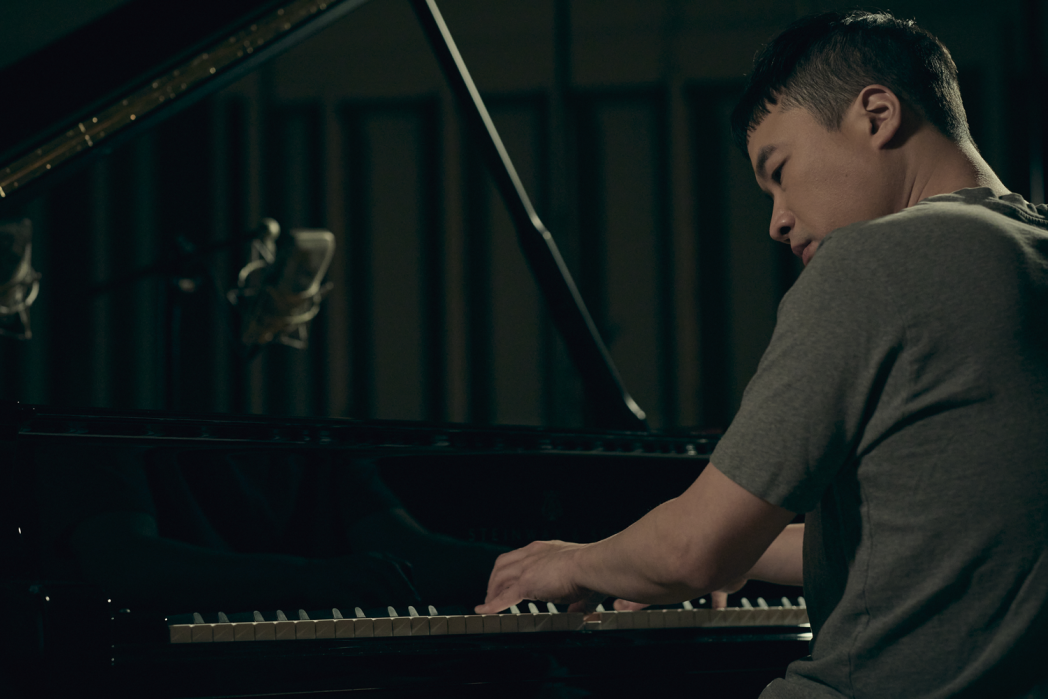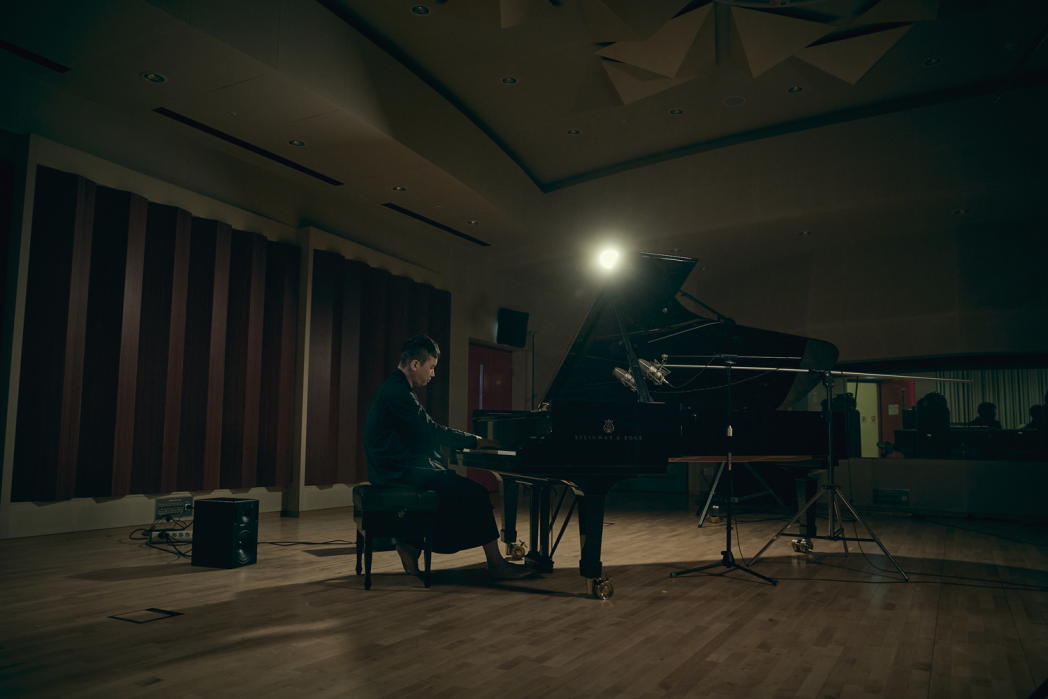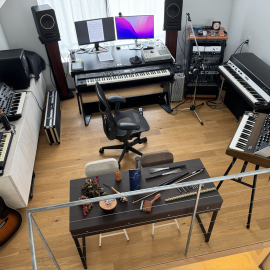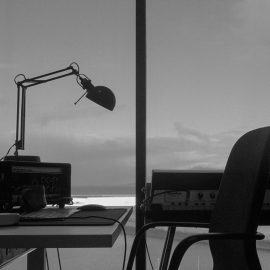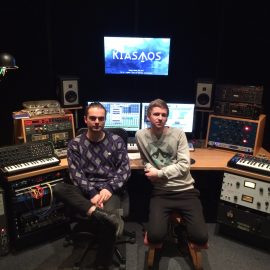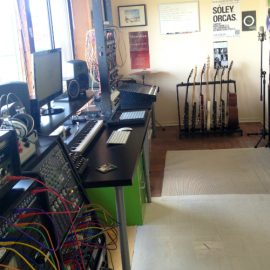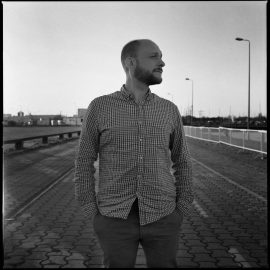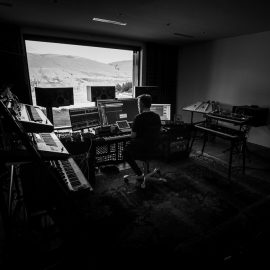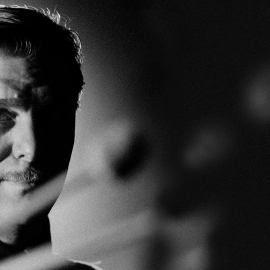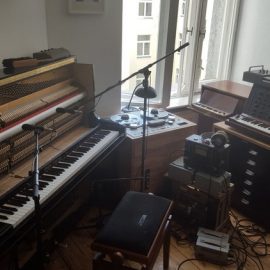Let’s start at the very beginning. Can you tell us how you got involved in composing, and what was your very first piece of gear?
I was very into thrash metal growing up, and Metallica are one of my heroes. When I was 12, I started a band that covered thrash metal songs. It was here, whilst covering songs, I asked myself, why don’t I compose my own songs? So, I decided to study composing. For thrash, I had to have an electric guitar. Mine was extremely cheap, and I don’t remember the brand. I’m sure the company has disappeared since because it wasn’t good. However, I do still remember my pedal. It was called Metal Zone by BOSS it was fantastic and so beautiful for me.
How many different studio iterations have you gone through, and what does your final setup look like right now?
I always like my studio space to be as minimal as possible. 2 laptops, speakers, guitars, and a piano, that’s it. My current studio has a high ceiling, appx. 5 meters tall, so I’ve recently decided to project images and videos right on the wall without a screen. This way, when composing for films and TV, I can watch movie scenes as a 200-inch projection It’s an outstanding part of my recent studio.
Tell us about your favourite piece of hardware.
It has to be my Grand Piano, absolutely. The Piano is my first language.
And what about the software that you use for production?
For production, I use Logic Pro and Pro Tools.
Is there a particular piece of gear that you’re just dying to get your hands on, and do you think one day you’ll have it?
It’d definitely be a Steinway and Sons grand piano, it’s just way too expensive for me. Plus, I’m terrible at maintaining instruments and keeping them in good condition. I always apologize to my piano and my piano…
Can you please share some aspects of sound design in your work?
I love reverb, a very long reverb! I use almost 90% of the capacity of my RAM and CPU for heavy and long reverbs. I’m not sure I know how to make a sound without reverb.
Any particular new techniques that you tried out for your new album?
I really wanted to make it simple but deep, so I chose solo piano paired with a string orchestra. The strings were recorded in Budapest with Budapest Scoring. Balint Sapszon is the CEO of the music service, and we have been working together for a long time, it’s always the best. For the recording, I needed the best piano and really good mics. I actually just started googling and found the legendary Rainbow studios in Oslo. The recording engineer Martin Abrahamsen saved my album, he gave me weeks just to record my album. I have been to so many studios and played the pianos all over the world, Paris, Tokyo, Seoul, Berlin, London, and LA. This truly was the best piano I have ever played in my life. A good instrument gives you such deep inspiration and can make you tremble with just one note.
What does your live setup look like, and what do you bring with you when you travel for an extensive tour?
It’s really simple, just my laptop and an audio interface, which is extremely small.
What is the most important environmental aspect of your current workspace, and what would be a particular element that you would improve on?
My piano and guitars are definitely the most important. I’m a morning person, so more daylight!
What can you tell us about your overall process of composition? How are the ideas born, where do they mature, and when do they finally see the light?
Well, most of the time, it’s the deadline. It can be the most powerful inspiration, I never want to disappoint my beloved ones, clients, and fans. That promise is very powerful.
After the piece is complete, how do you audition the results? What are your reactions to hearing your music in a different context, setting, or a sound system?
I usually check the audio with high-end speakers, but when I did the scoring for Squid Game, I had to check the final sound with cell phones, TV speakers and laptops because that is how people are watching Netflix. It was a pretty interesting and really important experience.
Do you ever procrastinate? If so, what do you usually find yourself doing during those times?
All the time… I’m a super lazy person, so without deadlines, I couldn’t do anything.
What gets you inspired?
Inspiration comes from everything. It comes from dreams, other forms of art, personal relationships, and politics. Every day, I sit in front of my piano, and I start to improvise like I’m meditating. During that meditation, everything deep inside my body naturally comes out and becomes something new with harmonies and melodies. Of course, I’m fascinated by those miraculous moments and genius ideas, but what gives me the most powerful inspiration is someone who’s devoting their daily life to their craft sincerely and ascetically.
And finally, what are your thoughts on the state of “electronic music” today?
Well…to be honest, I don’t know much about the electronic music scene today, but without electronic sound and without software like Logic and Pro Tools, we can do nothing.
